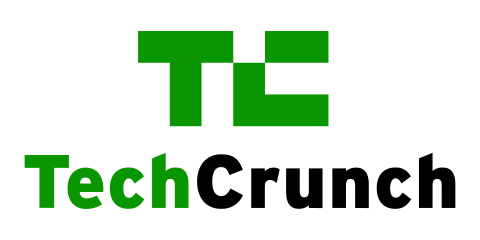POPVOX in the Media

Of Legislators and Large Language Models (Podcast)
Published on 3/4/2023 by Tech Policy Press, Author: Justin Hendrix
"How will so-called “generative AI” tools such as OpenAI’s ChatGPT change our politics, and change the way we interact with our representatives in democratic government? And how might it change the way legislators and other government officials do their jobs?"

Tech Policy Press
Published on 2/8/2023 by Tech Policy Press, Authors: Zach Graves, Marci Harris, Daniel Schuman
When it comes to AI, the clear opportunity for Congress is to use AI to help free up staffing hours from communications and lower-level office tasks, in a similar way to the productivity boost achieved from typewriters and computers. But in contrast to word processors, Wikipedia, or Google Search, AI tools will require disciplined human oversight and adherence to best practices.

What you (yes, you!) need to know about congressional earmarks
Published on 4/5/2022 by Fulcrum, Authors: Anne Meeker, Marci Harris
"With the passage of the fiscal 2023 omnibus appropriations bill and a wave of congressional press releases touting new spending in lawmakers’ states and districts, it is official: “Earmarks” are back."

It’s Not Just Roads and Bridges: Our “Civic Infrastructure” is Crumbling, and Here’s How to Fix It
Published on 7/15/2021 by Next City, written by Hollie Russon and Marci Harris
Infrastructure is the talk of the town in Washington, DC as cracked bridges, melting cables, and maxed out electric grids make news every week. But it is not just the roads and wires that carry our goods and information that are in need of an update.

How to keep internships vital to a functioning Congress during Covid
Published on 8/28/2020 by Fulcrum, written by Marci Harris and Ananda Bhatia
Remote work is changing congressional internships, and that's not all bad news.

Lincoln Network Panelists Say Washington Needs the Bigger Vision Silicon Valley Provides
Published on 5/2/2020 by Broadband Breakfast, written by David Jelke
"Harris suggested that policy wonks should try solving problems the Silicon Valley way: start with the problem they’re trying to solve and then work backward, while comparing and refining their approach."

Congressional Modernization Jump-started by Covid-19
by: Marci Harris, Claire Abernathy, Kevin Esterling, Brookings Tech Tank (June 18, 2020)
"The chaos surrounding Congress’s switch to remote work in response to the COVID-19 pandemic laid bare weaknesses of Congress’s technical procedures and infrastructure, from its inability to hold hearings by video or to conduct remote voting, to the absence of policies and appropriate technology to enable staff to work from home. As is often the case, necessity has proven to be the mother of invention—the COVID-19 pandemic required Congress to experiment with new technology and procedures, accelerating innovation, toppling past obstacles, and, ultimately, jump-starting modernization efforts."

The mailbox vs. the ballot box
by: Harvest Prude, World Magazine (May 1, 2020)
"While Washington pushes for absentee voting for Americans, it’s stewing in a partisan battle over its own voting system. With health concerns, as well as the optics of a sidelined Congress (especially with President Donald Trump’s daily coronavirus briefings) some lawmakers have called for changing rules to allow for remote work. "

#OpenCongress: How Congress Can Work Remotely During Emergencies
by: Micah L. Sifry, Civic Hall (April 24, 2020)
"When the US Congress recessed in mid-March so that Members as well as congressional staff could go home as COVID-19 social distancing measures came into effect, it did so without preparing to conduct remote deliberations. Now, Congress is stuck in limbo, trying to govern using the “unanimous consent” rule, which allows any single member to stymie proceedings and making it impossible for committees to function."

Organizations push for remote floor and committee debate, not just voting
by: Katherine Tully-McManus, Roll Call (April 20, 2020)
"Ahead of a week where voting logistics could be tested in real time, a dozen organizations are urging Congress to enable remote deliberations for House floor and committee action and for Congress to invest in its own technology to make remote governing more feasible."

Microsoft, Zoom and Former Lawmakers Hold Remote Hearing Test
by: Rebecca Kern, Bloomberg Law (April 16, 2020)
"Dozens of former congressional members are hosting a mock remote hearing Thursday to spotlight how Congress can continue its work online during the global coronavirus pandemic."

Pandemic ‘accelerating’ House modernization as lawmakers push for remote votes, hearings
by: Jory Heckman, Federal News network (April 6, 2020)
"The House, after some initial reluctance, is taking steps for members and their staff to work remotely more easily during the coronavirus pandemic."

Why Is Congress Still Meeting in Person?
by: Nancy Scola, Politico (March 26, 2020)
"One part of the experiment is already underway. Shortly before noon on Tuesday, a group of congressional expats and government experts gathered online for a trial run at conducting the often boring day-to-day business of Congress without being in the same place."

In This Emergency, Let Congress Work Remotely
by: Daniel Schuman and Marci Harris, The Bulwark (March 25, 2020)
"One part of the experiment is already underway. Shortly before noon on Tuesday, a group of congressional expats and government experts gathered online for a trial run at conducting the often boring day-to-day business of Congress without being in the same place."

Congressional experts call for emergency, remote legislative operations
by: Fulcrum Staff (March 23, 2020)
"With a senator and two House members now testing positive for the novel coronavirus, calls for Congress to shift to emergency, remote work are escalating."

Big rules changes required, and quick, for Capitol Hill to respond to coronavirus
by: Daniel Schuman and Marci Harris, The Fulcrum (March 11, 2020)
"The rapid spread of coronavirus has made it unsafe and unwise for members of Congress — many of whom are among those most likely to become grievously ill — to convene in person. Current rules, however, require members to be physically present to vote on the floors of the House and Senate. If our legislative branch is to respond effectively to this crisis and play its vital constitutional role as a check on the executive and judicial branches, it must act now to give itself the option to convene in a temporary emergency remote session."

Dems roll out sweeping environmental justice bill
by: Nick Sobczyk, E&E News (February 27, 2020)
"Grijalva and McEachin used an online platform called PopVox to allow disparate environmental justice groups around the country to comment on the legislation. During the last 18 months, the lawmakers have also met with hundreds of groups and hosted a daylong environmental justice summit on Capitol Hill."

Modernizing Congress is a national security imperative
by: Marci Harris and Lorelei Kelly
"The coronavirus pandemic has made it unsafe and unwise for members of Congress to continue to meet in the U.S. Capitol. Many have already been exposed to the virus and, given the composition of Congress, many senators (average age: 63) and representatives (average age: 58) are among those most likely to become grievously ill. If our national legislature is to play its constitutional role as a check on the executive branch, how can it continue?"
/cdn.vox-cdn.com/uploads/chorus_image/image/66622762/voxlogo.0.jpg)
Technology and transparency: the path to a modern Congress?
by: Richard Skinner, Vox (June 26, 2019)
"Witnesses — including Brad Fitch of the Congressional Management Foundation, Marci Harris of PopVox, and Michael Neblo of Ohio State University — offered a variety of solutions. Online town halls could offer more in-depth engagement between members and constituents. Fitch called for a task force of current congressional press secretaries to devise strategies to update constituent communication. Rep. Emanuel Cleaver (D-MO) and the witnesses agreed on the insight that, due to the decline in local news, many citizens only pay attention to the federal government. As such, members of Congress often find themselves contacted about purely local issues."

Testimony before the House Select Committee on the Modernization of Congress
(June 5, 2019)
"The House Select Committee on the Modernization of Congress held a hearing on how technology can improve engagement with constituents. Witnesses included Congressional Management Foundation President Brad Fitch, Ohio State University Political Science Professor Michael Neblo, Marci Harris, the co-founder of a technology platform called POPVOX. Witnesses offered recommendations for improving email communications and congressional town hall formats. According to the Congressional Management Foundation, the House of Representatives receives between 25 and 35 million messages a year from constituents."

Congress needs your input (but don’t call it crowdsourcing)
by: Lorelei Kelly, Tech Crunch (January 31, 2019)
"Marci Harris, the CEO of civic startup Popvox, put it well, “The Foundations for Evidence-Based Policymaking (FEBP) Act, which includes the OPEN Government Data Act, lays groundwork for a more effective, accountable government. To realize the potential of these new resources, Congress will need to hire tech literate staff and incorporate real data and evidence into its oversight and legislative functions.”"

Steny Hoyer launches website to gather public sentiment on the shutdown
by: Tajha Chappellet-Lanier
"Majority Leader Rep. Steny Hoyer, D-Md., wants to know what the American people think about the ongoing government shutdown, so he’s launched a website."

Unpredictable States of America
by: Nirmal Ghosh
"There is a resurgence of Congress," said Rachna Choudhry, co-founder of POPVOX.com, a non-partisan platform that tracks Congressional activity.

Civic startup connects constituents, lawmakers
by: Chloe Morrison
Leaders of a civic startup with ties to Tennessee have created an online platform that connects constituents and policymakers in an effort to transform public input into legislative action.

Interactive legislative tool for Tennessee
by: Tyler Whetstone
A former Tennessean is hoping to change how residents in the Volunteer State interact with elected officials during this legislative session. POPVOX, a for-profit, nonpartisan civic startup organization connects bills coming before Congress with users. The site is formatted to allow residents the ability to easily tell their representatives in Congress what they think with a few clicks of the mouse.

Tennesseans Get New Legislative Tool
by: Stacey Shrader
The creator of POPVOX, a for-profit, nonpartisan startup that connects users with bills coming before Congress, went live last week with a beta project in Tennessee. The pilot project allows voters to let their state representatives know what they think with a few clicks of the mouse.

Capitol Hill Not Quite Silicon Valley, But It's Trying
by: Alex Gangitano
As technology keeps changing the way politics and business is conducted, House Minority Whip Steny H. Hoyer, D-Md., and Rep. Mark Takano, D-Calif., are trying to get Capitol Hill on board, and they're making the Beta Labs briefing series part of their efforts. Beta Labs was established last year and gives staffers the opportunity to sit down with companies and learn how to integrate new technology into their everyday lives.

Civic engagement platform PopVox to expand to states
by: Zack Jordan
A platform that crowdsources opinions about federal legislation is preparing to launch state-level platforms — beginning with California and Tennessee.

Breaking In: How Tech Entrepreneurs are Changing Government
by: Adam Stone
For a long time tech entrepreneurs have battered against the ramparts, looking for a way to breach the walls of government with services they believed could further civic aims. They are finally getting through.

How PopVox gives a voice to citizens and an ear to Congress
by: Lalita Clozel
PopVox, launched in 2010, now boasts almost 400,000 users. The platform aims to bridge the communication gap between constituents and lawmakers.

The Future Of Political Engagement Is Here (And It's Called POPVOX)
by: Sarah McKinney
But what if there was a technology solution – a non-partisan platform providing you with a 360-degree view of every bill and resolution, organized by issue area to enable easy discovery, and aggregating personal letters from people just like you, as well as professional opinions from advocacy groups and trade associations, and using location-based data to show you what Congress is actually hearing from verified constituents?

HOW POPVOX HELPS PEOPLE SCREAM LESS, THINK SMARTER ABOUT POLITICS
by: David Zax
POPVOX IS GETTING BETTER AND BETTER AT TAKING AMERICA'S (TOO-OFTEN RACING) POLITICAL PULSE. BUT ITS ULTIMATE GOAL, SAYS FOUNDER MARCI HARRIS, IS TO LOWER THE VOLUME OF PARTISAN SHOUTING ENOUGH TO HELP AVERAGE PEOPLE MAKE SENSE OF THE ISSUES.
18 Major Tech Contributions From Entrepreneurial Women
by: Zoe Fox
Public service startup Popvox connects citizens with Congress in an innovative online platform, created by Marci Harris and Rachna Choudhry. Popvox provides a platform for members of the public to learn about what bills are on the docket so they can share their opinions with their elected representatives.
Start-ups aim for a more democratic lobbying system
by: Catherine Ho
Popvox is an online platform that collects correspondence between constituents and their representatives on certain bills and issues, organizes the data by state, and packages the information in pie charts and maps so lawmakers can easily spot where voters stand on a proposed bill.
Popvox connects advocacy groups, public to Congress
by: Steven Overly
Popvox acts as a nonpartisan delivery mechanism. Users post their comments publicly with a screen name of their choosing and Popvox privately routes their real name and address to members of Congress. This allows congressional aides to see whether the feedback comes from their member’s district.